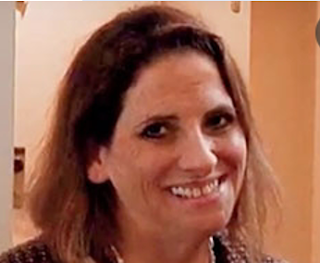When does a “mistake” become CRIMINAL?
By Dennis Taboada, M.eng.,CQE,CQM
This past week a jury convicted a former Nashville nurse of reckless homicide and impaired adult abuse after she was accused of inadvertently injecting a patient with a deadly dose of a paralyzing drug. RaDonda Vaught, 38, was indicted in 2019 on two charges – reckless homicide and impaired adult abuse – in the death of Charlene Murphey at Vanderbilt University Medical Center.Murphey, 75, died on Dec. 27, 2017, after being injected with the wrong drug. This was a terrible tragedy and certainly there is plenty of blame to go around.
When does a “mistake” become CRIMINAL?
Of course there needs to be reparations for the family involved. I support the right to sue for “malpractice.” The nurse in this case did not try to hide or cover-up what she did. I guess we need to define what a “Mistake” or “Error” is. According to Merriam-Webster Dictionary: “a wrong action or statement proceeding from faulty judgment, inadequate knowledge, or inattention.” According to Atlanta Attorney Alex Freeman, “The difference between a mistake and a criminal act is “WILFUL INTENT.” If there is no “wilful intent” then there is no crime, but there are legal liabilities. According to an NPR article While Vaught's defense acknowledged the tragic nature of Murphey's death, her attorneys argued that her mistake was not a conscious, criminal act of homicide.
"What struck me most about RaDonda Vaught's interviews was not her honest recitation of the facts ... but her genuine worry and concern about Charlene Murphey and concern for her family," defense attorney Peter Strianse said during the defense's closing statement Thursday. "She was not thinking about herself."
In a Safety Management System, SMS, we have an important element called NON PUNITIVE REPORTING. What does Non-Punitive reporting mean? In order to continuously improve, we need to know what is happening in our “SYSTEM.” The good and the bad. If we punish someone for “self reporting” and error or mistake they made, we create an environment where people are “Fearful” to report any incidents or hazards. It is bad enough for employees to receive administrative discipline, but when you cross the line to “criminal” you now create a very Toxic environment. I would add that this criminal threat to employees would lead to a much more dangerous environment because nurses/doctors will NOT act in situations that may save a person’s life in fear of being arrested.
What makes this case even more ominous is the fact that there was no autopsy performed. so there was no objective proof that the drug mistake was the cause of death. My question here is this:
What happened in the “SYSTEM” to cause this accident?
 |
| The "SYSTEM" Forces as defined by Dr. W. Edwards Deming |
Dr. W. Edwards Deming, “The system is responsible for the outcomes. NOT the people.” Why did nurse RaDonda make this mistake? Let’s look at the Deming “system” forces that may have affected her judgement. Machines, Material, Methods, People, Environment. There may not be machines involved, but the Material: Was it properly labeled? Was it identified properly to the patient? Methods: Is there a procedure in place for administering medication? Was the procedure followed? People: How many people did this medication pass through? Why didn’t others catch this mistake? Was there proper training given to administer drugs? Environment: Is the nurse working in a pressured environment? Is the Management supportive or toxic? We must examine the “System!” If the nurse is held criminally liable, why is not the management held criminally liable as well?
THE RESULT OF THIS RULING

Janie Harvey Garner, Founder of "Show me Your Stethoscope"
Janie Harvey Garner, the founder of Show Me Your Stethoscope, a nursing group on Facebook with more than 600,000 members, worries the conviction will have a chilling effect on nurses disclosing their own errors or near errors, which could have a detrimental effect on the quality of patient care. "Health care just changed forever," she said after the verdict. "You can no longer trust people to tell the truth because they will be incriminating themselves."
Certainly, nurses and others in the medical and pharmaceutical professions are going to think twice about reporting any mistakes or errors. Many will now refuse to make decisions without some sort of legal personal liability waiver. Before this ruling, Nurses would fall under the malpractice umbrella of the hospital or doctor. Yes there certainly need to be lawsuits. There needs to be a system to compensate the injured. This is the purpose of malpractice insurance. What is criminal prosecutions going to do to patient care? Will criminalizing mistakes improve the Patient Process? As a society, we are driving in Fear to our medical workers. How can they work with this “gavel” hanging over their heads? Yes, mistakes are going to happen! We need to learn from these mistakes and not merely BLAME the person. Management is responsible for the medical System and should be constantly evaluating processes to look for variations that may get out-of-control. By blaming the person, we let the same broken system continue and most certainly contribute to future tragedies.
Dennis Taboada, M.eng.,CQE,CQM
Note: Janie Harvey Garner is the sister-in-law of Dennis Taboada, author.





No comments:
Post a Comment